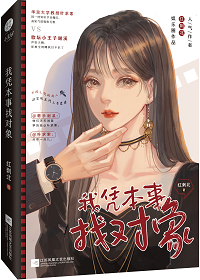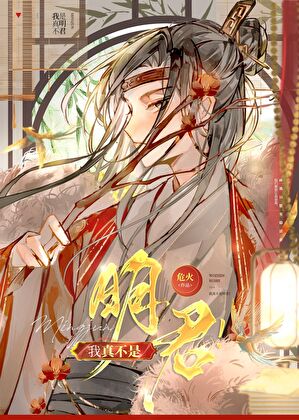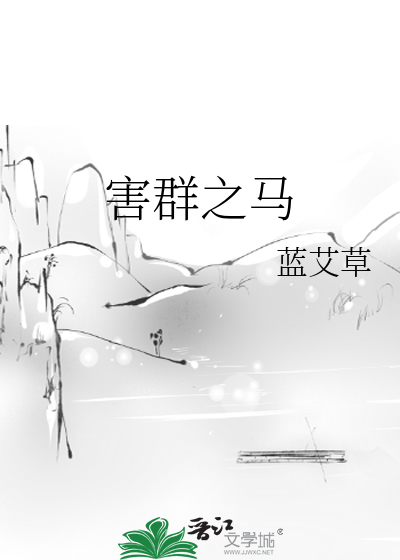The spare parts previously replaced during the hydraulic system overhaul had all been handed over to Qi Fang for disposal by the machinery factory and were stored in the workshop under his supervision.
All the Jicai-50 machines were deployed to the mountains, leaving none available for his research. To accommodate him, the bureau specially allocated an RT-12 for his use.
Though the parts appeared numerous and disorganized, Qi Fang knew the exact location of each one. If anything was out of place, he could spot it at a glance.
He swiftly restored several components to their original positions and, after scanning the gaps, remarked, "There's a hydraulic pump missing here."
On the other side, two hydraulic motors were gone, along with some piping and control valves—totaling over twenty items.
"Was there a theft?" Yan Xue's first thought, upon hearing Qi Fang mention the tampering, was Wu Xingde.
But they couldn’t entirely rule out the possibility. What if the missing parts were just a smokescreen?
"Not sure yet. Need to investigate further," Qi Fang said, setting the parts down before climbing onto the RT-12 again.
Recognizing the urgency, Yan Xue put down Xiao Feizai (Little Chubby) and followed. "Any signs of tampering?"
"Doesn’t seem like it," Qi Fang replied after thoroughly inspecting the hydraulic system. "But I never leave anything behind. I dismantle everything immediately after testing."
The machinery factory was crowded and full of prying eyes—leaving traces was out of the question. He had a sharp memory, so dismantling and reassembling later was no issue. The RT-12 currently had a half-installed hydraulic system, making it impossible for anyone to discern its purpose.
For good measure, Qi Fang checked other areas as well. Once finished, he climbed down. "We need to find out who’s behind this."
Whether it was related to Wu Xingde or not, someone had casually entered his workshop and taken things. Who knew what else they might have tampered with?
Qi Fang wouldn’t tolerate a rat lurking in his domain, especially when he had research to conduct. He couldn’t afford to let someone operate in the shadows.
Yet, both he and Yan Xue remained composed, betraying nothing on their faces. As they left with Xiao Feizai, they even exchanged a casual greeting with the guard at the gate.
That evening, they went to Liu Weiguo and Zhou Wenhui’s home for dinner, staying to chat for a while before returning with a sleepy Xiao Feizai.
Once alone, Yan Xue soaked her feet and asked, "Does anyone at the factory know what you’re researching?"
"Shouldn’t," Qi Fang replied calmly. "I only mentioned wanting to study how to improve the system."
"Could this cause trouble?" If Wu Xingde was involved, things would become even more inconvenient.
"We’ll see," Qi Fang said, his expression steady as he added hot water to Yan Xue’s basin. "I’ve made some progress—just a few parts need modification."
He had never been satisfied with the existing control valves, but none of the available models were suitable. He might have to design new ones himself.
After setting down the kettle, Yan Xue leaned over and squeezed his hand. "Let’s take it slow. No need to rush."
They still had two years before everything concluded. Compared to the original timeline, Qi Fang was already progressing swiftly and steadily—even making improvements along the way.
Qi Fang returned her grip and, after a pause, pulled her into an embrace, gently ruffling her hair.
As for how to catch the culprit, Qi Fang likely had a plan, so Yan Xue didn’t press further. The thief had already left traces—tracking them down shouldn’t be difficult.
Sure enough, the matter was resolved within days, though the outcome was different from what Yan Xue and Qi Fang had expected—and it caused quite a stir.
It wasn’t Wu Xingde making another move. Instead, two boiler workers from the factory had been stealing parts to sell, and they’d targeted Qi Fang’s workshop.
During winter, the factory relied on boilers for heating, which produced furnace ash. A dedicated handcart with a dump bed was used to haul the ash away.
Though the bed wasn’t large, it could still hold two to three hundred pounds. The thieves hid stolen parts beneath layers of furnace ash—heavy and inconspicuous.
Not just parts—since brass was valuable (buyback stations paid over three yuan per pound), they also stole wires, stripping off the plastic coating to sell the metal.
They had been careful, mostly taking discarded spare parts and rearranging the remaining items to mask the theft. Yet Qi Fang had noticed. They were caught red-handed while pushing the cart of furnace ash out.
Upon interrogation, it turned out they had stolen extensively—enough to warrant a prison sentence. The incident sent shockwaves through the forestry bureau, with meetings held across departments for days afterward.
On the day of their public sentencing, the truck carrying the thieves—now labeled "Thieves" with large signs hung around their necks—passed by the cultivation center.
Yan Xue didn’t join the onlookers. She wasn’t sure whether the fact that Wu Xingde was uninvolved was a good thing.
It had been over three years since they last heard of Wu Xingde. He seemed to have given up entirely, vanishing without a trace.
But his conflict with Qi Fang was irreconcilable. If Qi Fang thrived and gained influence, Wu Xingde would be the first to suffer.
So if Wu Xingde had the means, he would undoubtedly suppress Qi Fang, preventing him from rising high enough to retaliate.
Ideally, Yan Xue hoped Wu Xingde would remain dormant until the final reckoning. But they couldn’t afford complacency—precautions were necessary.
Ironically, the incident earned Qi Fang another commendation from the bureau for promptly uncovering the theft and preventing further losses to the state.
As year-end approached, Secretary Tang faced a dilemma.
Both Yan Xue and Qi Fang were strong candidates for municipal "Advanced Individual" awards—one for pioneering a new industry, the other for solving a major problem.
But their youth was a hurdle. At just over twenty, submitting both might reduce their chances.
Some believed seniority and connections mattered more, while others argued that young people should "temper their impatience" and yield opportunities to veterans.
Thus, despite Yan Xue’s competence, she remained an acting manager. Keeping the position vacant was easier than promoting her—the resistance would be overwhelming.
"Having no talent is a problem; having talent is also a problem," Secretary Tang sighed to Qu Mingli. "How did you handle this back then?"
Qu Mingli had prioritized merit over seniority, but circumstances were different then. "I never submitted recommendations to the county level."
Mainly because he hadn’t had time—he was transferred to Changshan County before he could, and Yan Xue and Qi Fang followed.
The two young men never stopped moving forward, continuously making contributions to the bureau. No one knew what else they might achieve.
"How about we submit all of them?" Qu Mingli suggested with a smile. "The city might need them again next year—just approve everything."
That wasn’t necessarily true. Who knew if all the cultivated fungus could be sold? What if the market became oversaturated next year? Or what if the province finally allocated funds?
Just as Secretary Tang was about to respond, the office phone rang. He picked it up and immediately frowned. "You’re asking if we have ready-made modification parts?"
They did have some, but mostly scattered components meant for maintaining the new hydraulic systems.
However, that wasn’t what the caller was looking for. A neighboring county had multiple machines breaking down, and they were scrambling for a solution.
This winter was exceptionally cold, putting extra strain on machinery. Changshan County had already replaced the worst-affected units, so they hadn’t noticed, but other counties weren’t so lucky.
Since last month, machines had been failing sporadically, though not severely enough to warrant reaching out to Changshan County.
But with the recent temperature drop, those machines finally gave out. Repairs couldn’t keep up, and the desperate county had no choice but to call.
Soon, others called as well, all asking about parts. Even the municipal bureau contacted Secretary Tang, as if he could magically produce spare components.
Secretary Tang had copies made of Qi Fang’s procurement list and sent them over, but some were impatient, asking if they could start modifications first—after all, Changshan County had experience.
This made Secretary Tang hesitate. What if they couldn’t afford the hydraulic system upgrades and expected the bureau to cover the costs?
Though the bureau cultivated fungus and ran a mycology center, giving them some financial flexibility, they weren’t fools.
Then the municipal bureau summoned him for a talk, hinting that since they had the means, they should "contribute more to the collective."
This was an era of collective contribution—timber and minerals from Changshan were already being shipped nationwide. But the county itself had only upgraded a fraction of its machinery. Where would the money come from?
Secretary Tang returned fuming, barely stopping himself from cursing in the office. If the higher-ups were so incapable of securing provincial funds, why pressure him?
Qu Mingli, however, remained calm. "No need to rush. We’re not the ones in a bind. The higher-ups will figure something out. Even if the province won’t fund full replacements, they’ll at least cover modification costs."
Secretary Tang agreed and called the municipal bureau back. They’d handle the modifications, but the city would have to get the money from the province.
He refused to believe the province would remain indifferent if logging in Jiangcheng City ground to a halt.
Besides, this was the province’s responsibility. Their disorganization had left applications unresolved for two years.
Still, things had improved compared to the past, when work and schools had even shut down temporarily.
Eventually, the municipal bureau’s secretary personally visited the provincial capital and returned with progress—though the funds hadn’t arrived yet, a provincial tractor factory engineer had.
The factory produced agricultural tractors, quite different from forestry machinery, but hydraulic systems were universal.
Clearly, the province doubted their modifications and sent an expert to inspect them.
The engineer, responsible for hydraulic systems at the factory, had frowned upon hearing about a county’s mechanical upgrades.
Blunt by nature, he warned the municipal secretary outright: if the modifications were subpar, he’d report it to the province.
Even after a year of smooth operation, the secretary felt uneasy under his stern gaze.
But such technically minded, socially inept people had their advantages—they got things done. The engineer wasted no time, heading straight to the modified logging machine at the mechanical plant.
Half an hour passed, and he didn’t emerge.
An hour later, he was still inside.
Only when someone called out did he finally respond.
Yet when he descended, he didn’t immediately comment on whether the modifications met provincial standards. Instead, he scanned the crowd and asked, "Who worked on this system?"
Secretary Tang pointed at Qi Fang. "Comrade Qi Fang from our mechanical plant. He even made provincial news for converting a tractor into an excavator."
The engineer dismissed the tractor conversion—anyone at his factory could do that if they wanted.
What interested him was something else. "How did you come up with this design?" he asked Qi Fang.
Qi Fang, prepared, held up the modification blueprints and began explaining, lowering them slightly to accommodate the engineer’s height. The two fell into discussion, one speaking, the other nodding.
"Is this approved or not?" someone whispered impatiently.
With multiple machines out of commission, the urgency was understandable.
But the municipal secretary and the mechanical plant staff had already relaxed. "If it weren’t acceptable, he wouldn’t be discussing it with Qi Fang," one remarked.
Sure enough, the engineer alternated between praise—"This is clever," and "I hadn’t thought of that"—before suddenly asking Qi Fang, "Are you free after the New Year?"
Even knowing the modifications were sound, the question took everyone by surprise.
The engineer pressed on, undeterred. "Our factory is hosting a technical exchange. Several major manufacturers will attend. You’ve got innovative ideas—would you like to join?"
This was a rare opportunity. The mechanical plant’s secretary immediately accepted on Qi Fang’s behalf. "We’d be honored. Just let us know the date."
Qi Fang paused but said nothing. The engineer, however, glanced back at the blueprints. "Good thing you didn’t use too many hydrostatic components. Otherwise, we’d have to rework them."
"Why? Are some parts being discontinued?" Qi Fang caught the implication instantly.
The engineer glanced at him unexpectedly, "It's true that production will be halted. The engineer who originally developed this system has gone into politics—who's left to work on this?" His tone carried a hint of disdain, as those dedicated to technical work often looked down on those who curried favor or relied on connections.
But the most crucial piece of information was that Wu Xingde might have abandoned research to pursue a political career. Qi Fang lowered his gaze.
After the provincial tractor factory engineer returned, the provincial funding finally came through—though it was less than half of what had been requested two years ago, it was enough to address the most urgent needs.
For the next while, Qi Fang worked overtime, prioritizing the modification of the most severely affected Jicai-50 models to restore normal logging operations in the counties.
His schedule meant leaving before his chubby little son woke up and returning after the boy was already asleep. Several days passed without them seeing each other.
Then one day, the child suddenly refused to sleep. Yan Xue and the Second Old Lady took turns trying to soothe him, but the little one stubbornly fought to keep his eyes open—until the sound of a bicycle outside made him snap them wide. "Daddy!"
Qi Fang, still carrying the chill of the night, had barely stepped inside when he heard the call. Seeing his son struggling to stay awake just to see him, his usually indifferent expression softened instantly.
That is, if you ignored the fact that his son, terrified of losing his father, insisted on staying in the same room to sleep with him...
By the time the New Year approached, the worst batch of modifications was finally complete. The rest could be handled gradually after the logging season.
Qi Fang returned to his regular work hours, and Secretary Tang submitted the nominations for municipal outstanding workers—this time without hesitation, putting forward both Qi Fang and Yan Xue. Both were ultimately selected.
If nothing else, the accounts submitted by Changshan County and Baisong County spoke for themselves—not to mention the remaining Jicai-50 models in other counties that Qi Fang still hadn’t fixed.
The municipal bureau was uncharacteristically generous this time, arranging for the two to attend the commendation ceremony together. A photographer took pictures, including one of the two youngest outstanding workers.
Less than two weeks later, that photo appeared in Yan Xue’s diary. Qi Fang later sought out the photographer and asked for two extra copies.
Yan Xue didn’t notice at first—she and Guo Chang'an were sent to Wugang Town and Liuhu Town, respectively, to guide locals in learning bottle cultivation techniques for wood ear mushrooms.
Since she had helped set up the cultivation rooms the previous year, the staff at the local guesthouse recognized her and gave her the cleanest room available.
Between training sessions, Yan Xue picked up some gossip: the suppliers who had raised wood prices last year had called Secretary Zhang.
Not just Secretary Zhang—Zhuang Qixiang had also received calls, being pressured, "Are you buying or not? If not, we’ll sell to someone else."
The seller even had the nerve to say, "Last time you said you wanted to buy, so I held stock for you. Do you still want it or not?"—as if Zhuang Qixiang had already committed.
But Zhuang Qixiang had dismissed the idea the moment he heard the price. His earlier "We’ll consider it" had just been polite.
The seller, however, took it as a firm agreement. "I’ve held it this long for you—it’s hard to sell to others now. How about you commit to a two-year contract, and I’ll give you a discount?"
The audacity—coming back after failing to sell elsewhere, offering a slight discount only if he bought two years’ worth upfront.
Thanks to his experience under the previous Secretary Hu, Zhuang Qixiang remained calm. "No need. Sell it to someone else."
Secretary Zhang at Wugang Town’s forestry bureau faced the same situation, leaving the price-hiking suppliers baffled.
Wait, it’s already April—if they weren’t buying now, did that mean they weren’t planning to grow wood ears this year at all?
At first, the suppliers weren’t worried. After all, it wasn’t their problem if Wugang and Liuhu lacked wood for cultivation.
Sourcing wood from farther away wasn’t practical—their city was the closest supplier; transportation would be an issue otherwise.
But autumn turned to winter, then New Year came and went. The usual inoculation period passed, and even after lowering prices, no one bought.
The price hike had been for profit, but now they were making nothing—better to have never raised prices at all.
At least selling at the original price would’ve brought some income. Unsold, the wood was just firewood, worth ten yuan a cartload if they disposed of it themselves.
Regret set in, along with resentment toward the one who’d pushed for the price hike. What was the point of stirring up trouble?
The ringleader stubbornly insisted, "You think they’re not losing out by not buying? Just wait—by autumn, they’ll come crawling back."
Then May arrived, and the first batch of wood ears hit the market—boldly labeled "Wugang Wood Ears."
Typically, demand peaked before New Year, then tapered off as people preferred fresh stock over last year’s.
For wood ears, this was manageable, but for mushrooms—sun-dried without preservatives—they’d even develop bugs after summer.
So most towns sold out before New Year, leaving only small quantities of leftover stock.
But these Wugang Wood Ears were different—plentiful, clearly not old stock, though the pieces were smaller than last year’s.
Someone asked, "Is this last year’s unsold stock? Why so much?"
The clerk replied, "No, it’s this year’s new crop. Just arrived."
"New crop?" The customer was surprised. "Don’t these usually come out in June?"
The clerk didn’t know the details. "All I know is it’s this year’s, just a different variety. And it’s cheap—two yuan per pound."
At that price, even those who’d walked away turned back. "What variety is this cheap?"
"Must be worse than last year’s," someone else chimed in before the clerk could answer.
If it were the same quality, why sell so cheap? The supply cooperative staff had sampled it and confirmed the difference.
But at two yuan a pound, even those who couldn’t afford it before could splurge on a small handful.
A little went a long way when soaked—just a small bunch could make a whole dish. Bit by bit, the stock dwindled rapidly.
The supply cooperative sold out a full bag in two days and immediately contacted Wugang for another shipment.
The Wugang forestry bureau team finally breathed easier—their product could sell after all.
Secretary Zhang from Wugang was quite a character—whenever the price of wood rose, he’d send the salespeople out to sell it.
As a result, several companies realized that no one had bought their wood, yet the harvest still came in—a month ahead of schedule, and with no shortage in yield.
It was practically a slap in the face, leaving the forestry bureaus fuming but helpless.
By the time this batch of mushrooms was nearly sold out, the log-cultivated ones hit the market—a perfect timing that ensured neither side affected the other.
Moreover, their target audiences slightly differed: bottled mushrooms could be sold mainly in rural towns, while log-cultivated ones were better suited for counties and cities with better conditions.
Soon after, Wugang Town placed a second order—5,000 bottles, to be delivered by August this year.
After the deposit was paid, Zhou Wenhui came to record the transaction and couldn’t help smiling as she told Yan Xue, "You were right—we’ll have to cultivate two batches a year from now on."
"But that’s the limit. We can’t do more—we’ve already covered all the convenient delivery areas."
Yan Xue’s words made Zhou Wenhui’s smile falter. It was true—within the province, the only places left without mushroom sales were those with poor transportation access.
And if mushrooms couldn’t be sold, no one would expand production, nor would new customers come to buy spores. Their cultivation center’s sales had effectively plateaued.
Yet Yan Xue said this with a smile, her expression untroubled. Zhou Wenhui steadied herself and asked, "Do you have some kind of plan?"
"I have a few ideas." Yan Xue stood up and called over Guo Chang’an, Lang Yue’e, and a few others. "Are you free? Come over for a quick meeting if you’re not busy."







